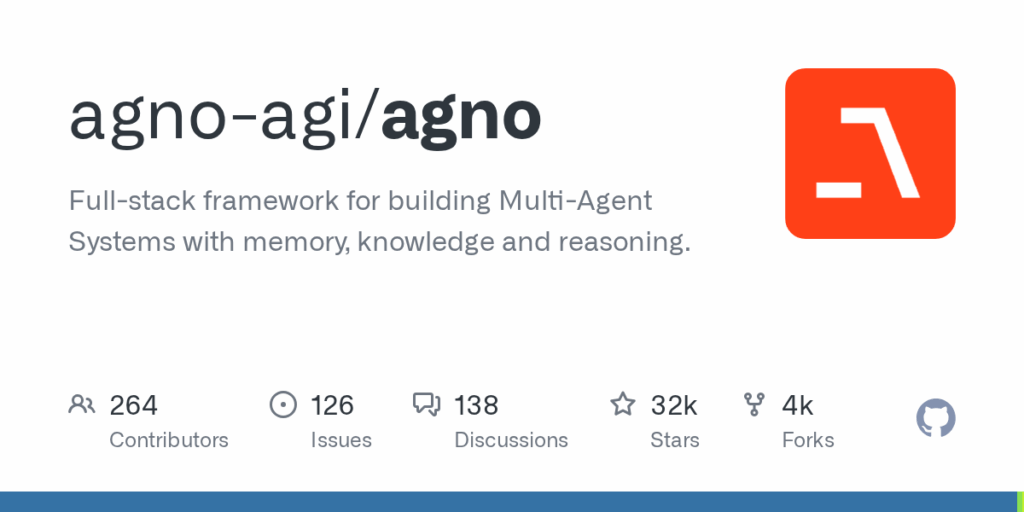agno
Basic Information
Agno is a full-stack Python framework for building multi-agent systems that incorporate memory, knowledge and reasoning. It is designed to let developers create agents at five levels of capability, from simple tool-using agents to agent teams and stateful agentic workflows. The README shows examples such as a reasoning finance agent that uses YFinance and a coordinated multi-agent team that uses web search and finance tools. Agno supports serving agents via pre-built FastAPI routes and provides monitoring and examples for getting started. The project includes installation instructions, a cookbook of examples, and guidance for integrating model providers and tools, enabling developers to prototype, run and monitor agentic applications in production-ready configurations.








